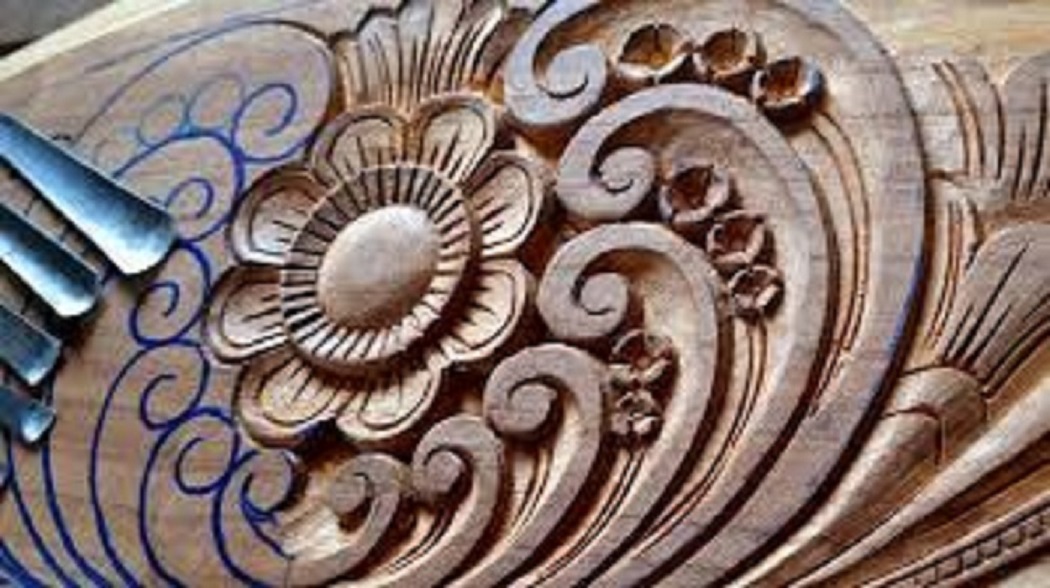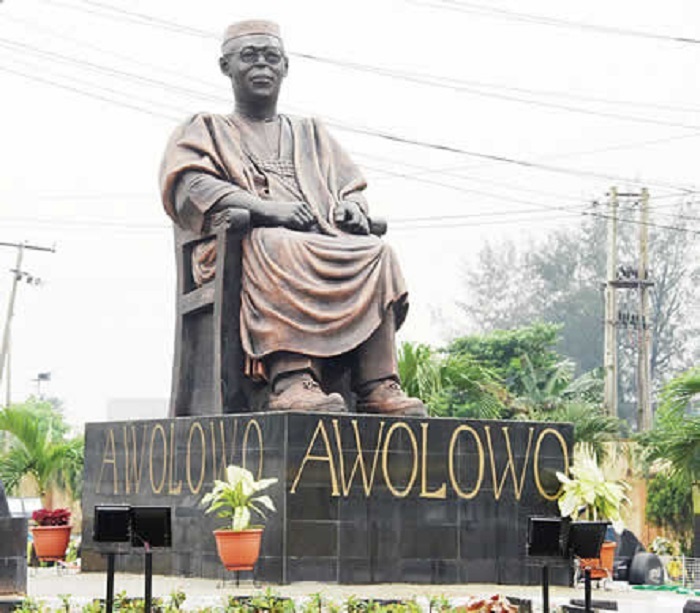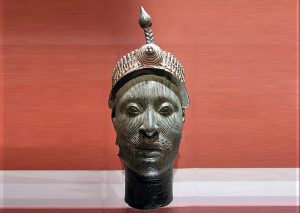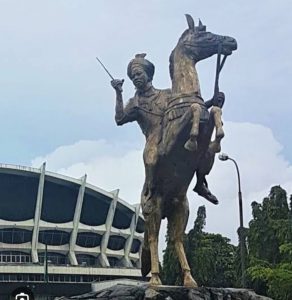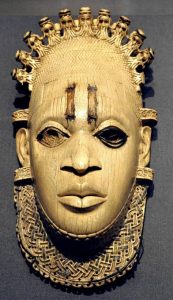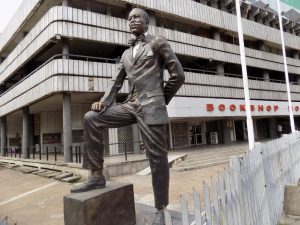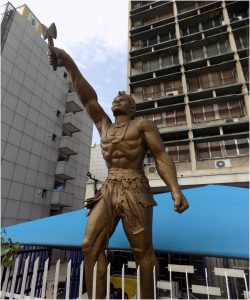
King Jaja of Opobo Credit: Pulse Nigeria
The King Jaja of Opobo Statue is a bronze monument in memory of King Jaja of Opobo.
It is located within the Opobo town centre; erected by public subscription in 1903. It was listed as one of architectural, historical and cultural significance of Nigeria by the National Commission for Museums and Monuments on 14 August 1959.
The statue stands on a grey granite plinth, surrounded by cast-iron railings.
Jaja was born in Umuduruoha, Amaigbo, in the year 1821, at a period, when slave trading was still in Igboland, South East of present-day Nigeria (However, his birth name or that of his parents is unknown).
Jaja was kidnapped when he was 12 years old and taken to Bonny Island, where he was renamed Jubo Jubogha by his first master, and later resold to Chief Alali, the head of the Opobu Manila Group of Houses. The British traders who could not pronounce his name gave him “Jaja”.
After some years, Jaja finally graduated from being a servant to becoming an apprentice, learning the palm oil trade and the politics of the land. After his master’s death, because he was ambitious and politically astute, he took charge of the trades his master left behind.
Jaja became the head of the Anna Pepple House, extending its activities and influence by absorbing other houses, increasing operations in the hinterland and solidifying his base. A power struggle ensued among rival factions in the Canoe houses at Bonny, this led to the breakaway of the faction led by Jaja. He established a new settlement, which he named Opobo. He became King Jaja of Opobo in 1869 and declared himself king and independent of Bonny.
King Jaja of Opobo controlled trade and politics in the delta area because of the strategic location of Opopo, being in between Bonny and the production areas of the hinterland.
Slavery used to be a thriving business that earned many people wealth and affluence in those days, but with the abolition of the Slave Trade in 1807, people started looking in the direction of a new money-making business of palm oil. This trade thrived so well that the region was named the Oil Rivers area.
King Jaja of Opobo, blocked the access of British merchants to the interior, a decision that gave him a monopoly of the palm oil market. He became so successful that he never needed the services of British intermediaries to ship his produce to Liverpool. He was dealing directly with Britain.
The Europeans could not take it any longer, so they sought free trade with the Qua Ibo people in the hinterland to take control of the market. The Qua Ibo people who traded directly with the Europeans were raided and dealt with.
At the 1884 Berlin conference, which led to the partition of Africa, the other European powers designated Opobo as British territory, and they moved in to claim it, but Jaja was defiant; he did not stop taxing the British traders.
After several skirmishes between the European traders, they lured him into a “settlement meeting”, where he was arrested, tried and sent into exile in London; later, to the former Gold Coast (Now Ghana).
They accused him of administering illegal oaths to the native people in his markets ostensibly to frighten them from dealing directly with European agents. He was also accused for barring trade to the inland districts beyond his jurisdiction, blocking the highway and sea entrance into Opobo River, thereby flouting the terms and spirit of the Berlin Treaty of 1884.
Not content to keep him in far Gold Coast, he was again, moved to the Caribbean Island of St. Vincent, to live further in isolation from his people.
The British wanted to try him on the Island for his “crimes.” This did not augur well with the people (some of whom were of African descent), as they felt insulted by the British bringing an African King to ridicule and shame in their land. Fearing an uprising, the British sailed to St. Vincent. From there, Jaja sent several petitions to the British Government pleading for a return to his homeland.
Jaja was allowed to embark on a voyage home in 1891, but sadly, he died on his way. His remain was taken to Tenerife in the Canary Islands, where they buried him, but, later exhumed following protests and was taken to his homeland.
Following King Jaja’s exile and death, the power of the Opobo Kingdom declined drastically, and the British plunged the resources of the land to feed their industries in Europe.
King Jaja was one of the most fascinating 19th Century rulers in the Niger Delta.
What’s your thought about this?
Like, comment, follow and share.


